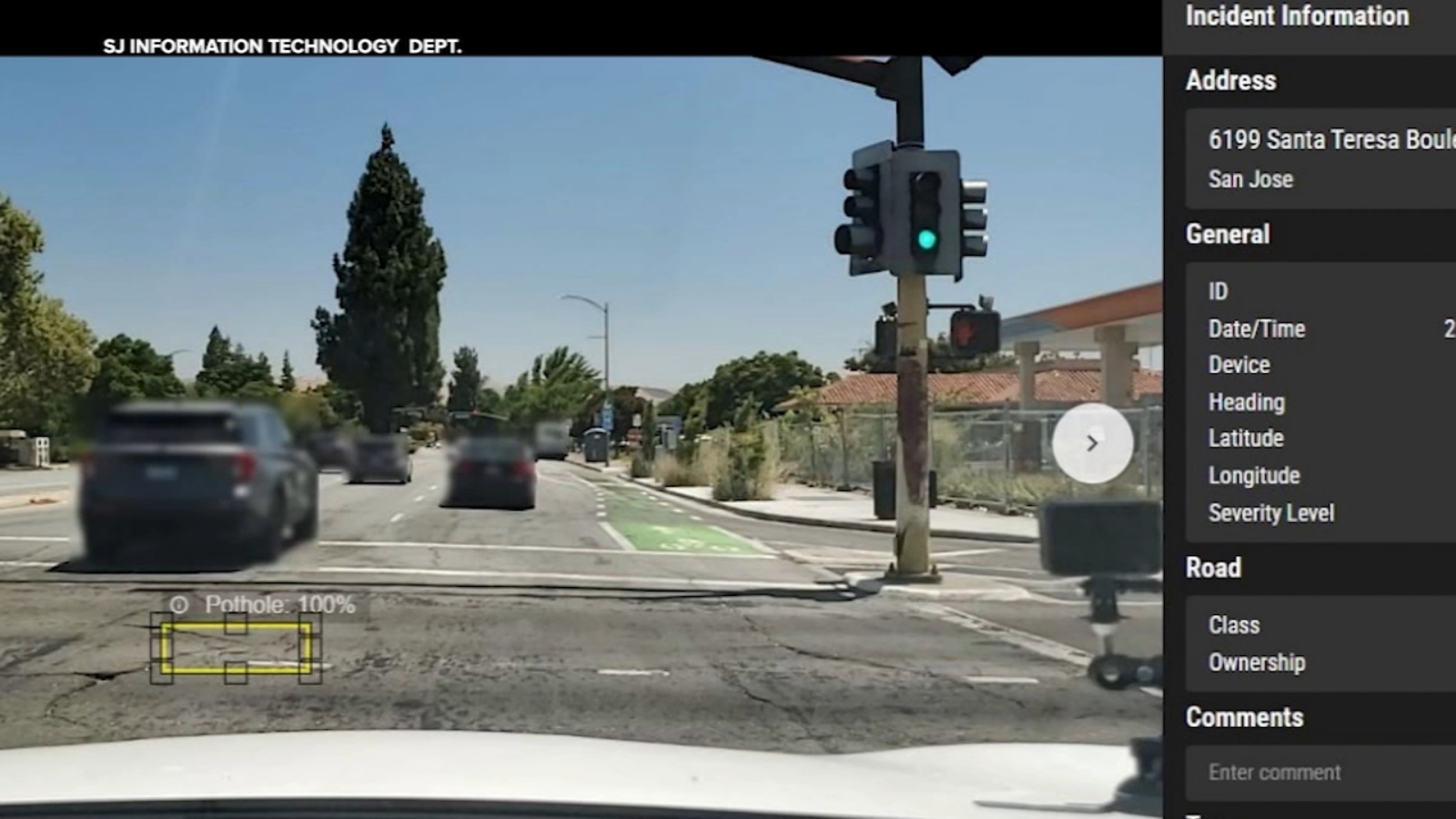
""Right now, San Jose 311 really relies on our residents to report issues in San Jose and that shouldn't be their job," San Jose Information Technology Dept. Public Information Manager Chelsea Palacio said. "That should be on the city to find those issues and resolve them. So, with AI technology, we're hoping that we can be a more proactive city.""
"Using cameras mounted on city vehicles to capture road conditions, AI detects obstructions in and around roadways in an effort to reduce them. Early testing in South San Jose's District 10 has shown great results. "We had a 97% accuracy when it came to detecting potholes and an 88% accuracy in detecting illegal dumping or garbage piles," Palacio said. "Just that initial testing really showed the city that this technology can work and AI can help us.""
"The city is now entering into phase two. After about a year of training the AI model, the Information Technology Department will now expand the number of objects the AI can detect with even greater accuracy. Phase one required city staff to manually input results into 311, but phase two will automatically do this - so city staff can focus on dealing with the reported issues."
The City of San Jose operates the Road Safety Conditions Pilot Program using cameras mounted on city vehicles and AI to capture road conditions and detect obstructions such as illegal dumping, lived-in vehicles and potholes. Early testing in South San Jose's District 10 showed 97% accuracy for pothole detection and 88% for illegal dumping detection. After about a year of training the AI model, the Information Technology Department will expand the number of detectable objects and improve accuracy. Phase two will automate input into the 311 system so staff can focus on resolving reported issues rather than manual data entry.
Read at ABC7 San Francisco
Unable to calculate read time
Collection
[
|
...
]